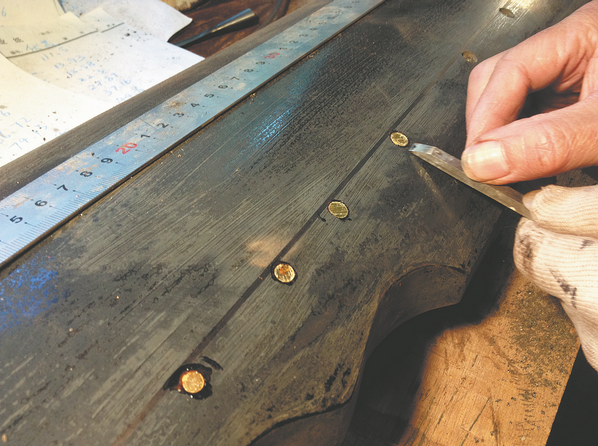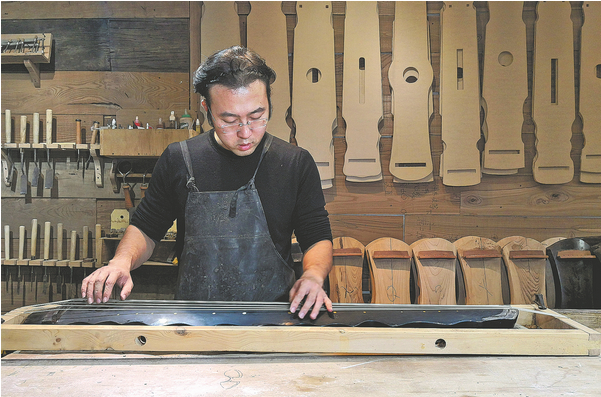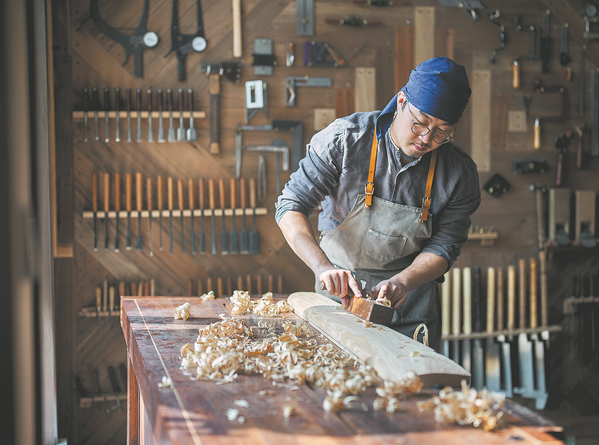Master craftsman of a legacy

Guqin-making is a time-consuming process that takes patience and meticulousness. WANG JING/CHINA DAILY
Patience is one of the key factors in making a guqin, or the seven-stringed Chinese zither. It takes about two years to finish making one, says Sui Yiyang, 37, who has been devoted to guqin-making for over a decade.
In his studio in Tianjin, tools of various kinds and sizes hang on the walls. Pieces of wooden guqin frames lie on his table.
The body of a guqin is made of two parts, a flat bottom and an arched top. The body of the instrument is painstakingly and repeatedly varnished with a thin layer of lacquer mixed with powdered deer antler. The lacquering process can take months to complete.
The strings of a guqin are traditionally made of twisted silk; today they are often specially developed steel-and-nylon strings.
Sui learned guitar, drum and bass as a teenager. He was introduced to the guqin during a trip with his father. During the seven-hour drive from Beijing to the Inner Mongolia autonomous region, he listened to the guqin recordings in his father's car and was captivated.

Sui Yiyang works in his studio in Tianjin. The guqin enthusiast has been devoted to making the instrument for a decade. WANG JING/CHINA DAILY
"The elegant and lingering sounds of the guqin are totally different from the Western musical instruments I learned," he recalls.
After returning to Beijing, he started learning the instrument. Later, he learned how to make the guqin from Han Tingyao, now 85, a Beijing-based master artisan.
Sui travels nationwide and even abroad to buy high-quality materials and tools.
For example, the kind and quality of the wood used is crucial, so he frequently travels to Fujian and Jiangxi provinces in search of the right stuff. He gets raw lacquer, which is used to protect the guqin from corrosion, from a single place— Rentoushan, a village in Maoba township, Lichuan city, Hubei province.
Years of guqin-making experience has gifted Sui with the ability to make high-quality instruments.
"Each guqin has its unique texture, which you can only get to know after you feel it with your own hands," he says.

Sui Yiyang works in his studio in Tianjin. The guqin enthusiast has been devoted to making the instrument for a decade. WANG JING/CHINA DAILY
 京公網安備 11010802027341號
京公網安備 11010802027341號